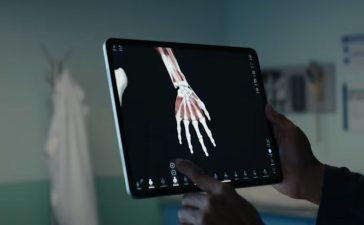Rad Power Bikes is partnering with Redwood Materials, a battery company founded by a former Tesla executive, to recycle e-bike batteries when they reach the end of their lifespan.
Customers will be able to bring in their depleted batteries to Rad Power Bikes’ retail locations, after which the company will send them to Redwood Materials for processing and recycling. (Rad currently operates 10 retail and service locations in North America.) Select Rad stores in California and Washington will also serve as drop-off locations for old smartphones, laptops, and tablets, for Redwood’s growing consumer e-waste collection program.
It’s a noteworthy deal considering that Rad Power Bikes is the number one seller of electric bikes in North America. The company has been at the forefront of the e-bike boom since the covid pandemic and has distinguished itself with its fat-tired e-bikes with big batteries and cargo-carrying capacity.
Redwood Materials was founded in 2017 by Jeffrey “JB” Straubel, a former chief technology officer of Tesla. In addition to breaking down scrap from Tesla’s battery-making process with Panasonic, Redwood also recycles EV batteries from Ford, Toyota, Nissan, Specialized, Amazon, Lyft, and others. The company also produces cathode and anode components for its battery customers.
Redwood Materials was founded in 2017 by Jeffrey “JB” Straubel, a former chief technology officer of Tesla
Redwood has said it can recycle and reuse up to 95 percent of the critical metals found in the lithium-ion batteries it collects, including nickel, cobalt, copper, aluminum, lithium, and graphite. Rad Power Bikes founder and chair Mike Radenbaugh said Redwood Materials was an appealing partner because it purports to do everything — process the battery, recycle the material, supply new batteries — that traditionally takes multiple stakeholders to accomplish.
“A lot of programs… the batteries are changing hands a few different times before they get to the recycler,” Radenbaugh said in an interview. “And there’s some efficiencies that can be lost there. We have enough volume where we can drive this program with Redwood to prove you basically have a big environmental impact here.”
Photo by Amelia Holowaty Krales / The Verge
People who own e-bikes have relatively few options when their bike batteries reach the end of their lifespan. Like other e-bike manufacturers, Rad Power Bikes’ batteries typically last 800 charging cycles, or around five to seven years. Without a well-defined collection and recycling process, most of those batteries just end up in a landfill — an outcome that Radenbaugh said his company is trying to avoid.
The company has piloted the battery collection process at a handful of its locations and was pleased enough with the results that it decided to scale up to all of its stores. “It’s an in-store experience only at this time,” Radenbaugh clarified. That means customers who don’t live close to a Rad Power Bikes retail location won’t be able to submit their batteries for recycling.
People who own e-bikes have relatively few options when their bike batteries reach the end of their lifespan
For Redwood Materials, the partnership with Rad Power Bikes will also help build support for its budding consumer e-waste collection program. The company currently operates collection sites at several auto dealerships, including Volkswagen and Audi; Rad’s retail locations will help grow that footprint even more.
After receiving batteries from its various partners, Redwood begins a chemical recycling process, in which it strips out and refines the relevant elements like nickel, cobalt, and copper. A certain percentage of that refined material can then be reintegrated into the battery-making supply chain.
Redwood is also positioning itself as a crucial player in the effort to bolster the US’s domestic battery supply. Today, most of the batteries that go into everything from consumer goods like laptops and phones all the way up to electric vehicles are made overseas, mostly in China. The Biden administration is seeking to shore up domestic battery manufacturing through the Inflation Reduction Act, which provides $10 billion in incentives for companies that build batteries in the US. And Redwood just scored a $2 billion loan from the Department of Energy to help boost its operation.
Redwood has said it began manufacturing anode copper foil at its Nevada facility late last year, and later this year, it expects to start exploring the production of cathode materials, which contain all the critical metals in a battery, like lithium, nickel, and cobalt. The anode contains copper and graphite and is primarily responsible for a battery’s charging performance. The company says it hopes to produce enough battery materials to power 1 million EVs a year.











